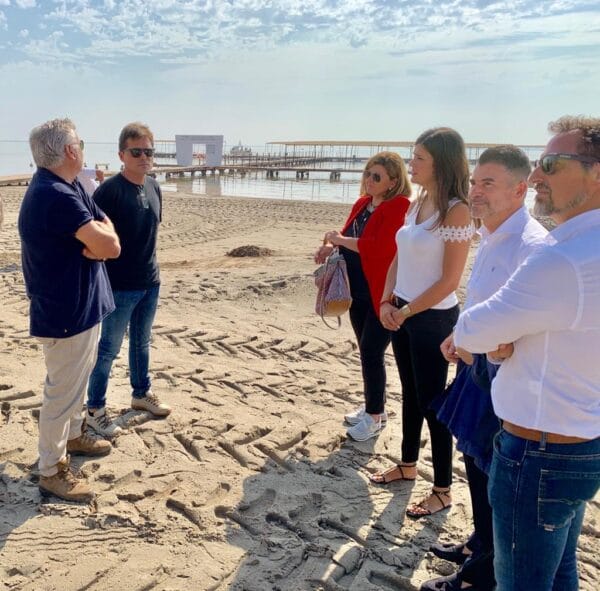THE Ministry of the Environment has to re-tender the project for the installation of 15 de-nitrification ponds, near the mouth of the Rambla del Albujón.
The Ministry of Agriculture and the Environment will put out to tender the project for the Mar Menor, following the rise in costs of raw materials after they were forced to suspend the award for the construction of 15 de-nitrifying ponds at the mouth of the Rambla del Albujón, budgeted at €2.5 million.
The project plan is to install a green filter from the Mar Menor, where citrus wood chips will be used to clean the flows down river to the lagoon.
The General Directorate of the Mar Menor abandoned the tender process. “It is due to the prices of materials having increased considerably in recent months” said department head Miriam Pérez.
“The budget assessment made at the beginning of the process is much lower than the real one,” she said.
The Ministry is set to update the prices, due to the enormous increase in the cost of raw materials in recent months.
Of the €2.5 million budget for the construction of the green filter on land within the municipality of Los Alcázares, the Ministry estimated the increase would double the initial cost, being €5 million.
“This setback will not cause any delay to the start of the project as currently the phase of expropriation of the land is still in progress”, said a spokesperson from the Ministry.
The facility will consist of 15 de-nitrification pools, using citrus wood chips from pruning, which will be capable of dealing with a flow of 200 litres per second, to minimize the entry of nitrates into the Mar Menor.
The move could eliminate approximately 70 or 80 percent of nitrates in the waters, depending on different times of the year.
The plan has provoked strong criticism, both from the political opposition in the Region, and from environmental organisations and neighbourhood groups, who also protested in front of the Ministry in Murcia.
They cite serious doubts that the use of lemon tree chips in rafts is a useful measure, especially when there are considerable floods.
“The project does not propose acting at source, nor is it dealing with the regulation and control of agricultural activities or the use of fertilizers,” they said.





